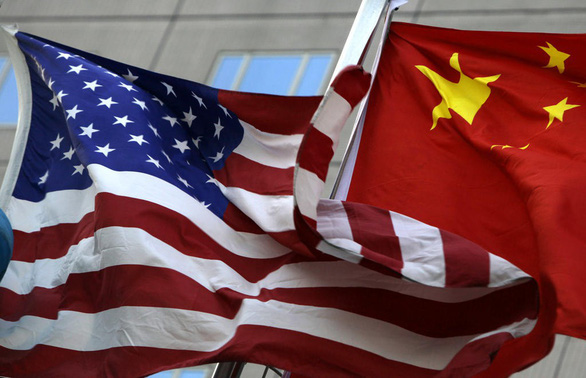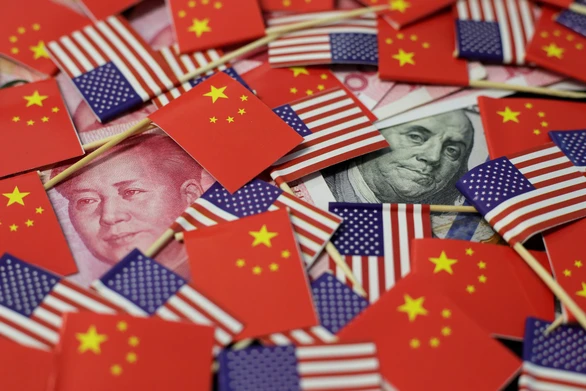Stocks declined, currencies wobbled because of the escalation of the US-China trade war
TTO - Asian stocks on the morning of August 26 fell sharply after the US-China trade war continued to escalate. The global business community is increasingly sensitive to the prospect of a world economic downturn.

According to CNBC, the Nikkei 225 index in Japan fell 2.36% at the beginning of the trading session on August 26, while the TOPIX index fell 2.18%.
The South Korean market is also not immune to losses, with the KOSPI index falling 1.8%. Australia's S&P/ASX 200 index fell 1.18%.
Overall, the MSCI market index for the whole of Asia, excluding Japan, fell by 0.71%.
On August 25, US President Donald Trump announced that he regretted not raising tariffs on China further, as well as fully declaring a "state of emergency" for the current trade war.
Trump's latest statements come after both Beijing and Washington launched additional tariffs to escalate tensions.
U.S. stock futures on August 25 immediately fell after that, according to CNBC.
Futures trading of the Dow Jones Industrial Average fell 224 points on August 25. This means that the trading session on August 26 will open with a decrease of 169.90 points.
Experts predict that S&P500 and NASDAQ 100 futures will not escape the same fate.
"The escalation of retaliation shows how difficult it has become to achieve the goal of reaching a trade deal and reducing tensions," said Louis Kuijs, head of Asia economics at Oxford Economics.
"It is very difficult for trade barriers, both existing and planned, to be removed anytime soon. Other restrictive measures may even be introduced soon," Kuijs predicted.
World currencies wobble
In the face of the current complicated developments, investors are rushing to find a self-defense plan from the Japanese yen.
According to Bloomberg on August 26, the yen against the dollar has risen to a record high price since 2016. Japan's currency is the largest currency with the best performance this year.
Meanwhile, CNH (yuan used in the foreign market) is at the lowest level. The Australian and New Zealand dollars also fell sharply.
The 5% tariff on $550 billion of Chinese goods was launched by President Trump just as the Friday trading session on August 23 ended.
The warning that the US economy will face "enormous risks" by the Chairman of the US Federal Reserve (Fed), Jerome Powell, immediately became a reality after that.
The market now expects trade tensions to unleash a deflationary punch and the market will suffer more trauma than last week, Bannockburn Global Forex's chief market strategist, Marc Chandler, forecasts.
"We should anticipate that the exchange rate of the yuan against the US dollar will be weaker. Reserve currencies, such as the Japanese yen and the Swiss franc, will be hunted. In addition, currencies that are closely tied to growth, including those of Australia, New Zealand and Canada, will be under a lot of pressure," Chandler added.
Related News

Foxconn pours $1.5 billion into Thanh Hoa to produce for Apple
14/2/2021

We have generated more than $1,200 billion in GDP
11/11/2020

Vietnam's economic growth forecast for the 4th quarter of 2020 and 2021: Will recover in a V-shape, in 2021 it will increase by about 6.5 - 7%
21/10/2020

Standard Chartered: Vietnam's GDP growth forecast of 3% in 2020 and 7.8% in 2021
20/10/2020

Samsung's outstanding moves in Vietnam and other countries in the "year of Covid-19"
20/10/2020
Featured Articles

Miza Group donated 3 billion VND in response to the contest movement "The whole country joins hands to remove temporary houses and dilapidated houses" in Thanh Hoa
7/6/2025

MIZA GROUP ENTERS THE TOP 10 GREEN VIETNAM ESG 2025 THANKS TO THE CIRCULAR ECONOMY DEVELOPMENT STRATEGY
27/6/2025

Miza (MZG) shares are officially listed on UPCoM
12/11/2024

